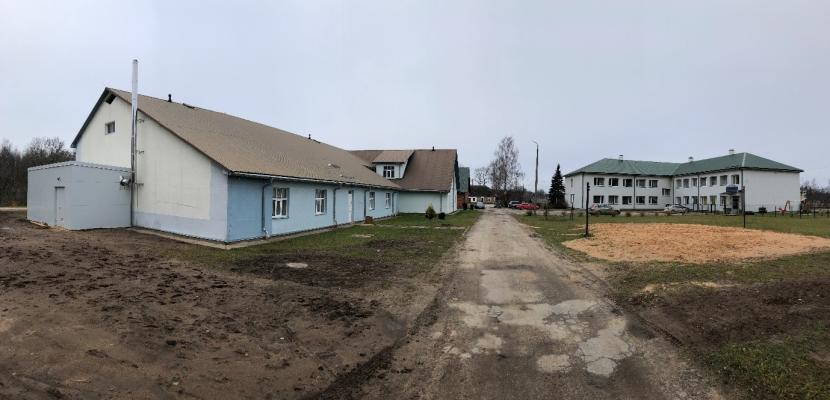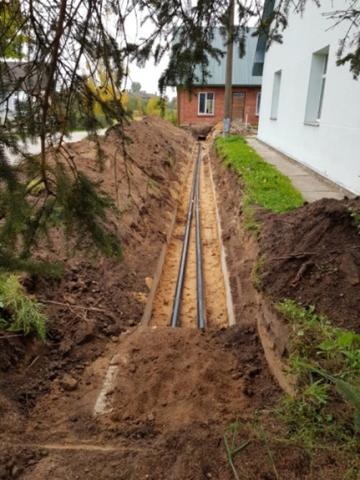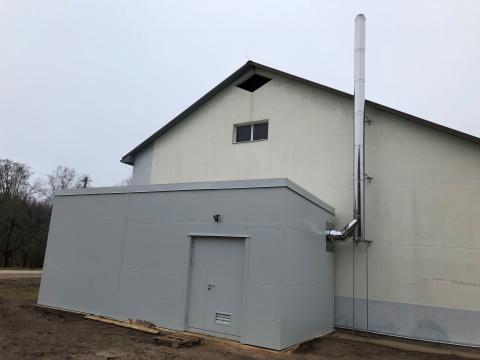
Low-temperature district heating pilot in Beļava village, Gulbene Municipality (Latvia)

About this good practice
Beļava village in Gulbene Municipality implemented a low-temperature district heating (LTDH) pilot to replace an outdated heating system from 1969. The new 199 kW pellet-fired boiler house (~93% efficiency) was built as a prefabricated container unit, and the distribution network was fully redesigned using pre-insulated pipes. Smart meters and indoor sensors were installed, and buildings were equipped with new substations, enabling lower-temperature supply (65–70 °C). Heat losses decreased from ~40% to ~5%, and heat generation costs fell by ~40%.
Implemented through the Interreg Baltic Sea Region project LowTEMP, the pilot received ~€70,000 in EU funding for smart technologies and strategy development, with Gulbene Municipality investing ~€187,000 in infrastructure. This is one of the first 4th-generation DH examples in the Baltics and serves as a model for replication in other rural areas.
Resources needed
€187,000 local investment for infrastructure; ~€70,000 co-funding via Interreg LowTEMP for smart metering and strategic planning; local engineers, municipal staff, and support from Riga Technical University and Vidzeme Planning Region.
Evidence of success
Heat transmission losses reduced from ~40% to ~5%. Heat production costs dropped by ~40%. Smart metering increased user awareness. Service reliability and temperature control improved. A local replication strategy was developed. While the fuel type (biomass) remained the same, switching from firewood to pellets significantly increased efficiency and reduced heat losses, resulting in more sustainable energy use but not a direct reduction in CO₂ emissions.
Potential for learning or transfer
The Beļava pilot shows how rural areas can modernize heating with LTDH. Its success rests on combining efficient biomass boilers, smart control, stakeholder cooperation, and consumer engagement. Key lessons include ensuring thermal renovation of buildings, involving technical experts early, enabling proper regulation and hydraulic balancing of internal heating systems, and providing user education.
The experience is transferable to similar small settlements with old district heating systems. A strategy for replicating the approach in other villages was developed, and the case has gained national and regional attention. It demonstrates a practical pathway to decarbonized heating in low-density areas.
Further information
Beļavā izmēģina zemas temperatūras centralizētās siltumapgādes sistēmas tehnoloģijas
Images

Documents
Pilot-Energy-Strategy-Gulbene.pdf
Website
Good practice owner
You can contact the good practice owner below for more detailed information.

